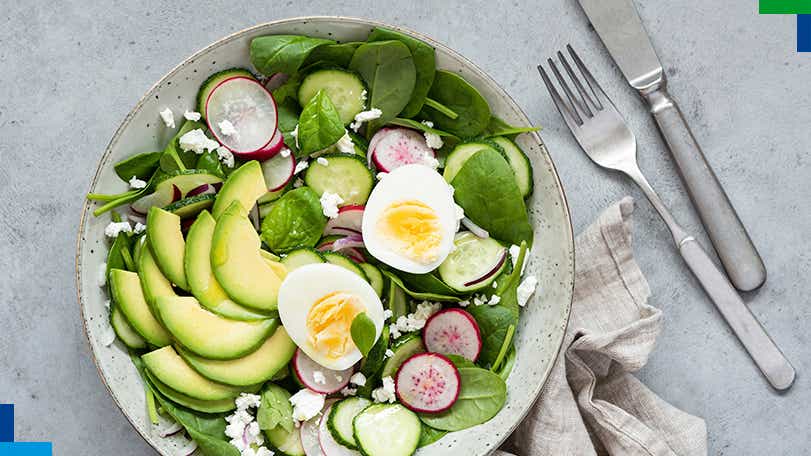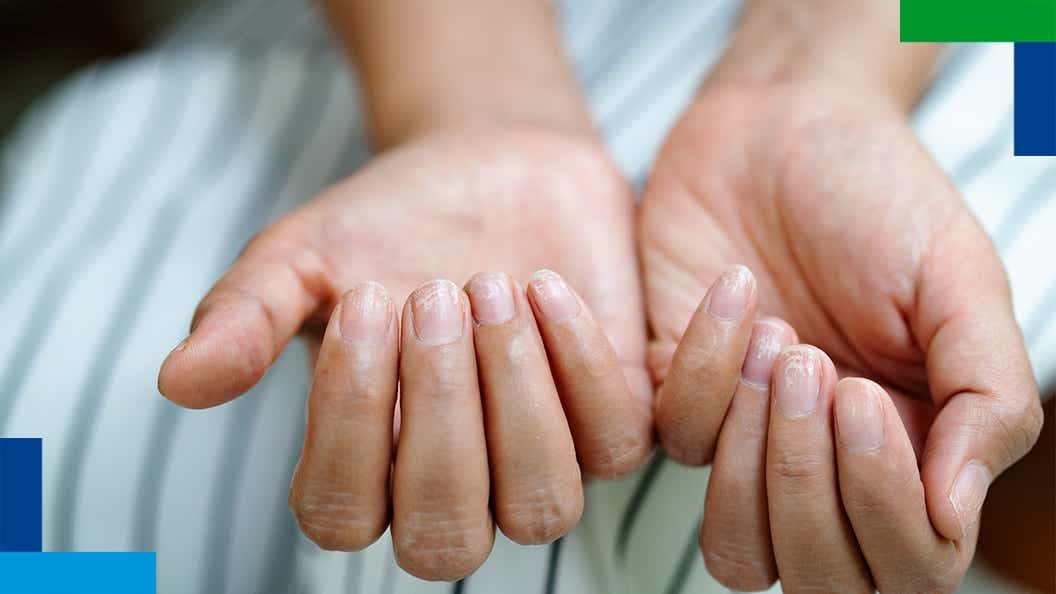Look after your body
Look after your body
If you have psoriasis (Pso), try to take a holistic view of your self-care. That means not only taking treatment as your doctor has prescribed, but also looking after yourself as a whole.
Watch your diet
It’s a good idea to try to eat a balanced diet and control your weight. Some healthcare professionals recommend eating lots of fruit and vegetables, because they contain vitamins and antioxidants, and fish such as salmon and sardines. Try to opt for healthy fat, like olive oil, seeds and nuts and cut down on processed foods, refined sugar, fatty red meat and dairy.If you drink alcohol, making sure you do so in moderation, and kicking a smoking habit may also help – alcohol and smoking have been shown to increase the risk of psoriasis.
TOP TIP
“I used to let it stop me from going about my life, but I refuse to let it get in the way anymore.”*
Keep fit
Exercise can help you destress and maintain a healthy weight, which could lower your risk of heart disease and type 2 diabetes.Remember that being overweight can also make it difficult to treat Pso plaques in wrinkles or folds of skin, so it’s worth getting fit for many reasons.Have you considered yoga, walking or gym classes? It’s important to find activities that work for you as you’re more likely to stick with them, but please check with your healthcare professional before starting anything.
Have you tried walking or taking the stairs whenever possible?
Don't forget your skin and nails
Pso can affect both skin and nails, so make sure you pay special attention to yours. These days, we all try to wash our hands regularly, so make sure you moisturise well. Keeping your nails trimmed and using gloves to help you avoid irritants when doing chores or gardening is also a good idea. If you have Pso plaques on your feet or toenails, make sure you keep them clean and dry by wearing merino wool socks or roomy shoes. And if you’re out and about, make sure you protect your skin from the sun. Finally, while it may be tempting to have a good scratch when you wash your hair, please make sure you don’t.

You may be interested in

Everyone’s different, and each of us has our own story to tell.

Advice about dealing with the main psoriasis symptoms.

Work out how much your psoriasis might be affecting you.
*Representative of patient experience